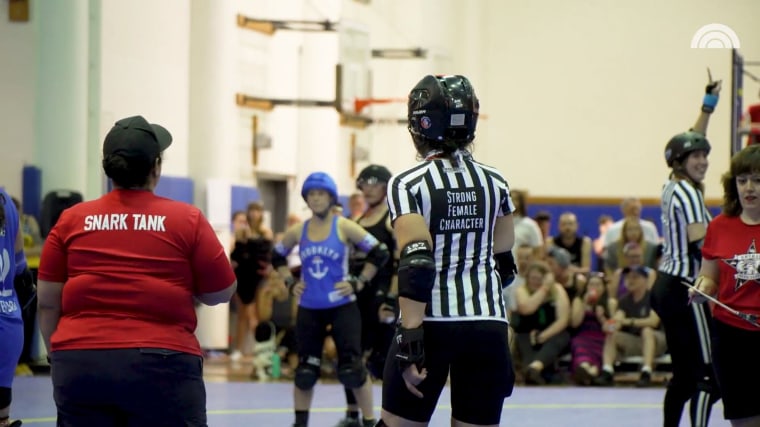When Staci Akselrod first approached her doctors about a lump in her right breast, she was told she was too young to have breast cancer. She had dense breast tissue, a known cancer risk factor, but was told not worry, unless one breast was noticeably uneven from the other.
“I had kind of always discussed with any doctor who gave me a breast exam that I had dense breasts, but no one had ever expressed too much concern over it or talked to me too much about monitoring,” Akselrod told TODAY.
Then, about a year later, in May 2017, the 26-year-old was diagnosed with breast cancer.
Now she is speaking out that breast cancer can strike at any age and that young women need to be vigilant about getting checked if they sense something is not right with their bodies.
In the year between first approaching her doctor and getting diagnosed, Akselrod was getting adjusted to her new life working after graduate school. She was seeing a doctor for suspected digestive problems and potential autoimmune issues. But it wasn’t until she realized the lump was larger that she decided to get it checked out. At the time, she was more concerned about her digestive health than the breast screening.
She was given an ultrasound due to her age and to expose her to less radiation and because it's a more accurate screening for women with dense breasts. On mammograms cancer appears white, the same color as dense breast tissue, making it easy for doctors to miss the signs.
The cancer diagnosis was a shock.
Breast cancer in women under 40 is rare and routine screening is not recommended. But the disease in younger women tends to be more aggressive.
A few weeks later, Akselrod started chemotherapy.
“If I could have gotten diagnosed at an earlier stage, you know, maybe things could have been a lot easier with treatment and surgery, or at least with surgery,” she told TODAY.
Losing my hair was losing control over my body.
Akselrod went through 18 weeks of chemotherapy in addition to a year of targeted therapy for HER2 positive cancer, allowing a complete response to the chemotherapy.
Feeling isolated
She never went to an appointment alone. Her parents alternated between visiting her in California for the first few rounds before she moved back to New York, making it much easier on her family to support her.
“People kept telling me that I was being brave, but I felt terrible. I was really scared," she said.
At the encouragement of those around her, Akselrod tried to go to support groups, but she was either younger than everyone by 20 to 30 years or they did not have the same diagnosis. The isolation she felt continued into the hospital rooms too as technicians would remind her how young she is, often saying they have never dealt with young people before.
Even so, for Akselrod, who had dyed her hair so many different colors that she cannot replicate it, losing her wavy and curly hair was one of the hardest parts of treatment.
“Losing my hair was losing control over my body. And even though I don't know if I necessarily, like, would have been too upset if I had decided to shave my head for another reason, in that moment, it was really upsetting," she told TODAY. "I very, very rarely wore wigs.”
As a self-proclaimed “avid bike commuter,” losing her active lifestyle was another difficult side effect of treatment for her. Before her cancer, Akselrod was working out a few times a week and biking everywhere in the East Bay. Her passion lied with skating, which she did two or three times a week.

Despite her treatment progressing, roller derby remained a constant. She has been a roller derby official for about eight years now, and even when she was too sick to be on skates, they found a way for her to stay involved. She was in skates as soon as she was cleared to do so.
“It's just so nice to have this thing that has been part of my life for so long and hasn't been as impacted by cancer as other aspects of my life. And to have this thing that just feels like me that I can do and keep doing through everything that's happened,” she told TODAY.